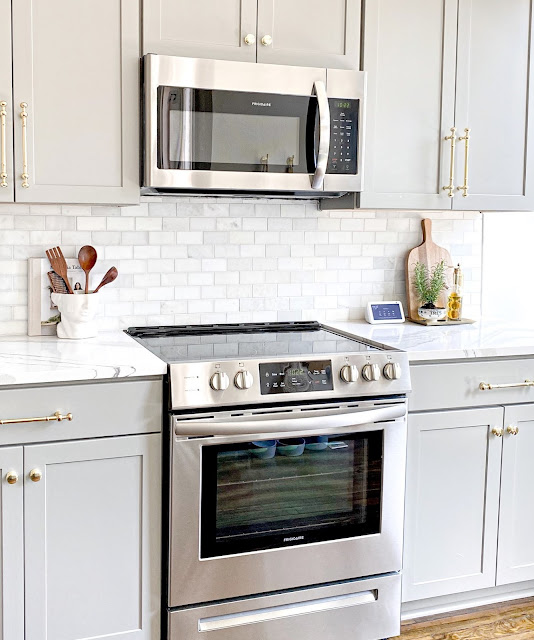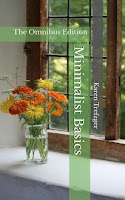Are you starting to realize:
- Clutter takes up too much space in your home.
- Living in a cluttered space adds frustration and annoyance to everyday tasks.
- Clutter makes homecare more difficult and time-consuming.
- Clutter burdens your mind.
- Clutter makes you feel more stress and anxiety.
You long to make a change. But you're busy. Maybe you've put off decluttering. If you've been procrastinating about getting your space in order, maybe it's because the idea of getting rid of things brings up fears of lack and deprivation. Or perhaps it's because you feel overwhelmed and don't know where to begin.
You can start today.
I know from experience that these feelings are the exact opposite of what you'll feel once you get into the decluttering process. The sense of lightness and freedom you'll gain, and the simpler, easier ways you'll be able to live every day are worth the effort.
So I want to help you remove the roadblocks to decluttering, and change that pattern of avoidance by taking on tiny, doable tasks.
Do any of these little tasks today, and let the momentum you create help you enjoy a clutter-free space sooner than you think! Then evaluate how everything looks and feels. It may be that your clutter wasn't as bad as you thought, and you're pleasantly surprised by the result.
Or you may realize that you've made a good start, but you need to repeat these tasks several times before your space looks the way you want it to. That's okay! If you have a really big clutter problem, or long-practiced cluttery habits, you'll want to incorporate as many of these tasks as you can manage into your daily routine. Do what works for you.
Before you begin, take pictures of your space so you can really see the effect of your clutter. Then imagine how your home will function without clutter.
- No more piles!
- You don't have to move six things to get to the one thing you really need.
- You don't feel guilty about "all that stuff I really should sort through."
- Your home is more efficient, more relaxing, and easier to keep clean.
- You have everything you need and nothing you don't.
Isn't that what you're longing for?
Now grab a box for donations and a bag for trash.
10 little tasks that make a big difference
1. Stop adding clutter.
If you already feel the burden of your clutter, stop adding to it! Before you bring home even ONE new object (including something that's free), ask yourself these two questions:
If you want to succeed at decluttering, you need to
stop shopping for entertainment, stop walking into stores "just to look," and stop visiting yard sales, flea markets, or online buy/sell/trade groups. Until you start to control your clutter-collecting tendencies, you'll find it difficult to make any real progress on your current piles.
2. Make your bed.
If there's stuff on the bed, clear it off. Put things where they belong, or put them in your donation box or trash bag. Now make your bed, and do it every day.
Consider paring down your collection of decorative pillows. How often do they simply get left on the floor instead of being artfully placed on the bed? How often do you sigh as you remove them at bedtime? And where do they end up – on the floor where you trip on them if you have to get up in the night? Could you have three decorative pillows instead of five or six or even more? How about having just one pretty pillow?
3. Clear one horizontal surface.
Flat surfaces are clutter magnets. Set down one paper and others will join it. Leave a dish, a jar, or an unfinished project, and you set the stage for piles to grow. Even décor can become clutter if it's just there to "fill a space." Clear the space and you'll have more room to use your surface as it was intended to be used.
Clear any table, your desk, your dresser, or your bathroom counter. Go bigger by clearing your kitchen counter. Whatever flat surface you choose, make it something you see and use daily. Then be sure to maintain that visually calming uncluttered space.
Related article: How a Naked Table Makes My Home Life Better
4. Designate a place for incoming paper.
In spite of modern paperless options, almost nothing gets out of hand as fast as the daily inflow of paper. Mail, schoolwork, receipts, notes, freebies – it can pile up quickly.
Always open mail over the recycling bin so you can immediately ditch the junk. Buy a small shredder to handle junk that includes personal information. Then:
- Designate one spot where you put bills you need to pay.
- Create a spot to file papers or receipts you need to keep.
- Have a basket where kids deposit school work, and recycle all of it every month, keeping only one or two favorites.
- Use the calendar on your phone or computer to immediately record all appointments and meetings so you can toss the paper reminders.
- Clear the refrigerator door, and create an attractive bulletin board for your most recent photos, invitations, or meal plans and recipes.
5. Declutter one shelf.
It can be a pantry shelf, a shelf in the kitchen or bathroom cupboard, a shelf in the linen closet, one shelf in a bookcase, or somewhere else you can do quickly and easily. Remove everything, wipe the shelf, and return only what you want to keep. Remember to keep it clear with daily or weekly maintenance.
6. Dump one drawer.
Pick any drawer. It can be a small drawer, or one you already know is mostly junk, or one that is filled with outgrown kids' clothes or old makeup. Whatever you choose, upend the drawer so you can see everything at a glance. Sort quickly, deciding what to keep and what to toss. Don't overthink every little item.
Cutlery trays* are multi-purpose organizers. Use them for office supplies, jewelry, makeup, and more.
* This blog is reader-supported. If you buy through my links, I may earn a small commission.
7. Find homes for five things.
We all have a few things that never seem to get put away. Choose five commonly left-out items, like remotes, hobby supplies, stuff you bought in bulk, or something else. Find places to store these things, someplace easy to remember and access. Then practice putting these five things away every single time they're used.
8. Donate three items of clothing.
Make decluttering your wardrobe easy by choosing just three pieces to give away while you get dressed in the morning. Do this daily or weekly, and pretty soon you'll have a bag or two to take to the donation center.
9. Set a boundary.
Setting a limit can help you declutter until you reach a manageable number of items. Perhaps you decide that you will keep your four favorite pairs of jeans, and remove the rest. Maybe you decide that two sets of sheets for each bed is ample, and the excess can go. You could choose to keep one set of everyday dishes and one set of formal dinnerware. Or maybe you can simply use one set for everything! You might keep tools and supplies for just two favorite hobbies, and even limit those items to one bin per pastime.
Whether choosing just three favorite photos to place on top of the piano, or opting to keep just one box of holiday decorations, a boundary lets you enjoy more space in your home and more time and energy to focus on what you really value.
10. Take your donation box(es) to the car.
As you complete one or more of these tiny tasks, you'll fill up a box of things to donate. Get these things out of the house so you're not tempted to rediscover them as "lost treasures." Put the box in your car so you can drop it off at the donation center the next time you're out.
Use these tiny tasks to clear clutter every day, and you'll see positive changes very quickly. Let your victories inspire you to keep going, and enjoy the results!
If you enjoyed this post, look for my book
Minimalist Basics: The Omnibus Edition. It includes three books from my bestselling Minimalist Basics series,
Decluttering: The Simple Guide from A to Z,
Minimalism 1-2-3: Simple Steps to a Better Life, and
The Minimalist Experiment. With so much inspiration and variety, you'll turn to this 3-in-1 volume again and again as you craft your best life.
Updated October 2024







One of the best things I did in relation to your item number one was stop entering drawings I didn't want to win. It's so tempting to sign up for all the drawings at fairs and conventions but all that does is get you on someone's mailing list. If I'm not willing to pay the taxes on whatever I'd win, I don't enter.
ReplyDeleteGood idea, Linda.
Delete